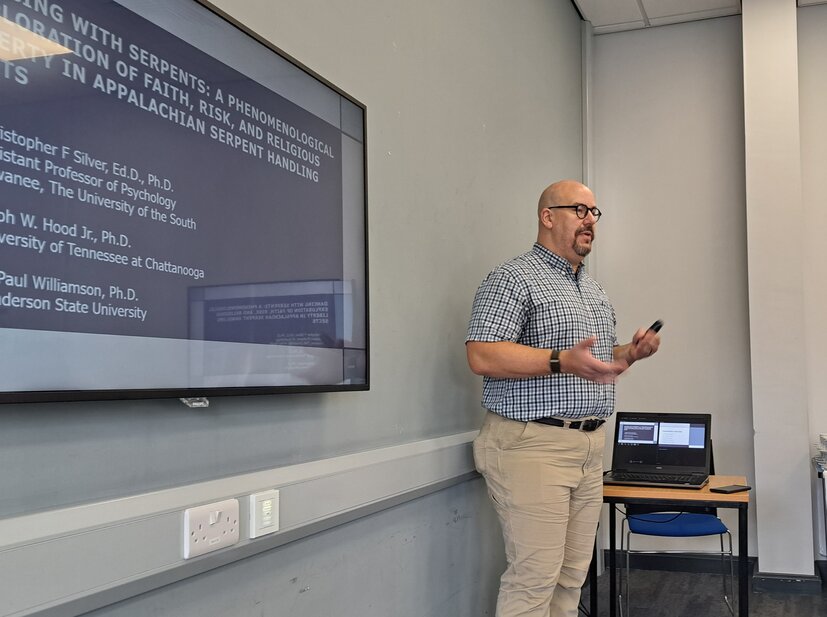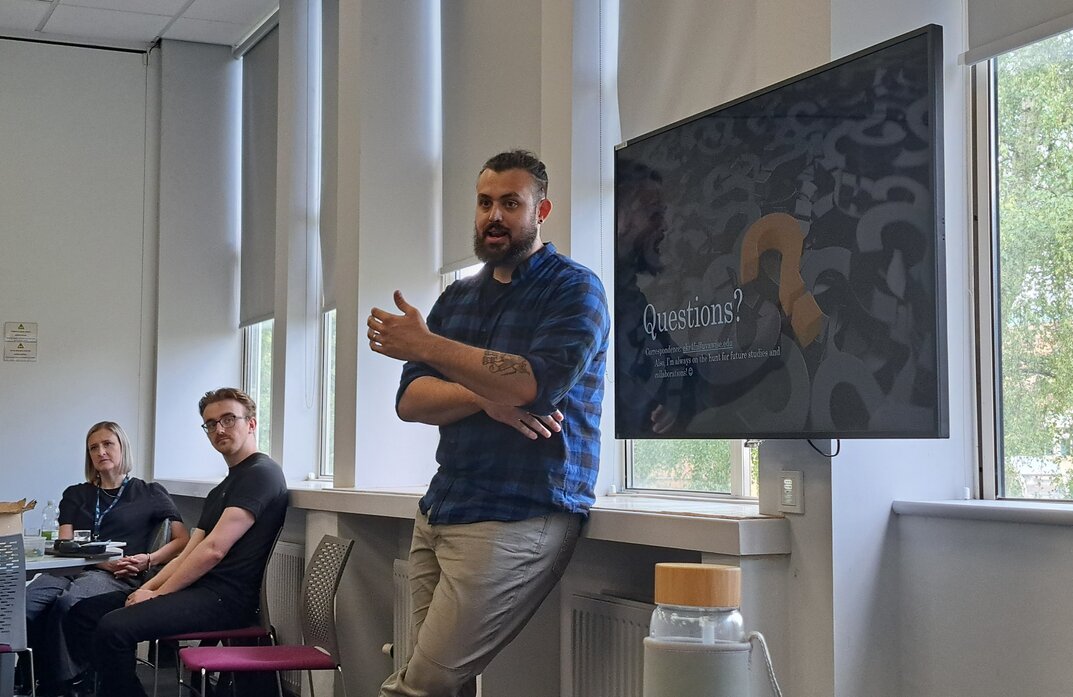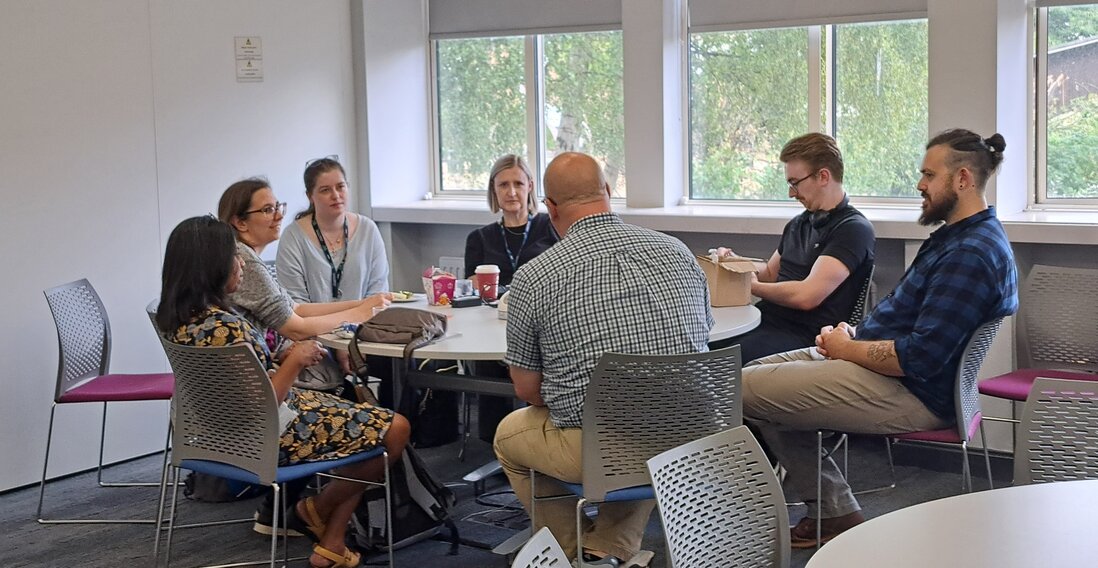Exploring Faith, Risk, and Meaning: Psychology of Religion Research Day at Wrexham University

Wrexham University recently hosted an inspiring Psychology of Religion Research Day, bringing together leading international scholars and our own academic community to explore how belief systems shape human experience. Sponsored by the Cyfiawnder: Social Inclusion Research Institute, the event not only supported thought-provoking discussions but also embodied the university’s commitment to collaboration and inclusivity — even funding travel and accommodation for our distinguished guests.
Our speakers, Dr Christopher Silver from Sewanee: The University of the South, USA, and Dr Robert Arrowood from the University of Virginia's College at Wise, shared powerful insights from very different corners of the field.
Faith on the Edge: The Lived Experiences of Serpent Handlers
Dr Silver — who holds an EdD and PhD and brings an eclectic research approach — opened with a captivating look at serpent handling within Pentecostal communities in Appalachia.
Seen by outsiders as a dangerous and outdated practice, serpent handling is for its practitioners a deeply meaningful act of faith, rooted in a literal interpretation of the King James Bible. Dr Silver’s research — based on over 20 site visits, interviews, media analysis, and ethnography — explored how these communities define risk in moral, spiritual, livelihood, and legal terms.
Despite being illegal in most US states, the practice persists as a test of devotion, framed by believers as “God’s will” if bitten. His work challenges media stereotypes and invites us to rethink our assumptions about religious liberty, cultural identity, and the resilience of traditions.

Confronting Life’s Biggest Questions: Existential Psychology in Focus
Next, Dr Arrowood took us deep into the realm of existential psychology — the branch of psychology concerned with the fundamental questions of human existence: Who am I? Where am I? What happens after I die?
Drawing on evolutionary perspectives and decades of research, he explained how humans have developed psychological “defence mechanisms” to shield ourselves from constant existential anxiety. Religion, culture, and shared beliefs, he argued, provide symbolic immortality, help us find meaning, and offer a buffer against the fear of death.
He also introduced the intriguing concept of “questers” — individuals who continually search for meaning and confront mortality more openly, often with unique impacts on their wellbeing and worldviews. His work demonstrates how belief systems, whether religious or secular, influence our behaviour, social bonds, and even how we market products like funeral services.

A Day of Collaboration and Insight
The event concluded with engaging roundtable discussions, giving attendees the opportunity to speak directly with our guest experts. We are deeply grateful to Dr Silver and Dr Arrowood for sharing their time, knowledge, and enthusiasm so generously. Their openness sparked probing questions, inspired fresh ideas, and encouraged connections across disciplines. Conversations continued well beyond the scheduled sessions, a testament to both the calibre of our speakers and the curiosity that drives our university community.

The Psychology of Religion Research Day is just one example of how Wrexham University brings global expertise to our campus, creating opportunities for meaningful exchange between scholars, students, and the public.
We’re building an internationally connected university — one where bold ideas, diverse perspectives, and collaborative research thrive. Whether you’re a student, academic, or curious member of the public, we invite you to be part of this journey.
